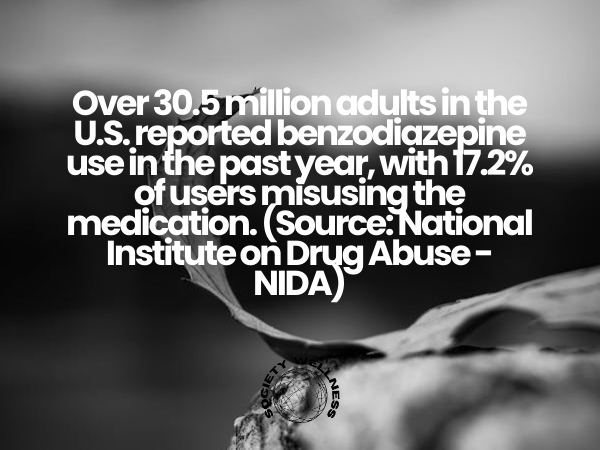Benzodiazepines, or “benzos,” are among the most commonly prescribed medications for managing anxiety, panic disorders, and insomnia. Ativan (lorazepam) and Xanax (alprazolam) are two well-known examples. While both medications are effective, they differ in terms of how they work, their duration, and their potential for misuse. For LGBTQ+ individuals, understanding these medications is especially important due to the unique stressors and mental health challenges that increase vulnerability to addiction and dependency.
At LGBTQ Addiction Centers, we specialize in offering affirming, inclusive care tailored to the specific needs of LGBTQ+ individuals. Through programs like LGBTQ Partial Hospitalization Treatment, LGBTQ Benzo Addiction Treatment, and LGBTQ Mental Health Programs, we provide holistic support to address mental health challenges and substance use disorders.
What Are Ativan and Xanax?
Ativan (Lorazepam)
Ativan is a benzodiazepine primarily prescribed for anxiety, insomnia, and seizures. Its slower onset and longer duration make it a preferred option for managing generalized anxiety or symptoms of alcohol withdrawal.
- How Ativan Works:
Ativan enhances the activity of gamma-aminobutyric acid (GABA), a neurotransmitter that calms the nervous system. By slowing down brain activity, it reduces feelings of anxiety and overexcitement. - Common Uses of Ativan:
- Generalized Anxiety Disorder (GAD)
- Insomnia related to anxiety
- Seizures (e.g., status epilepticus)
- Alcohol withdrawal symptoms
Xanax (Alprazolam)
Xanax is another benzodiazepine, widely prescribed for panic and anxiety disorders due to its rapid onset of action. While effective for acute anxiety or panic attacks, it carries a higher risk of dependency compared to Ativan.
- How Xanax Works:
Like Ativan, Xanax increases GABA activity in the brain, calming overactive neural activity and alleviating symptoms of anxiety or panic. - Common Uses of Xanax:
- Panic Disorder
- Social Anxiety Disorder (SAD)
- Short-term management of anxiety symptoms
Key Differences Between Ativan and Xanax
| Aspect | Ativan (Lorazepam) | Xanax (Alprazolam) |
|---|---|---|
| Onset of Action | Slower (30-60 minutes) | Faster (15-30 minutes) |
| Duration of Effects | Longer (6-8 hours) | Shorter (4-6 hours) |
| Half-Life | 10-20 hours | 11 hours |
| Common Use Cases | Generalized anxiety, seizures, insomnia | Acute panic attacks, social anxiety |
| Addiction Potential | Moderate | High |
| Withdrawal Severity | Less severe | More intense |
Why Benzodiazepines Are Risky for Long-Term Use
While Ativan and Xanax are effective medications for short-term relief, prolonged use can lead to tolerance, dependency, and withdrawal symptoms. LGBTQ+ individuals may be especially vulnerable due to increased exposure to minority stress, discrimination, and social pressures.
Risks of Long-Term Use:
- Tolerance: Over time, the body requires higher doses to achieve the same calming effects.
- Dependency: Long-term use can create physical and psychological dependency, making it difficult to function without the medication.
- Withdrawal: Abruptly stopping benzodiazepines can lead to severe withdrawal symptoms, including seizures, anxiety, and insomnia.
- Overdose Risk: Mixing benzodiazepines with alcohol or opioids increases the risk of life-threatening respiratory depression.
Signs of Benzodiazepine Dependency:
- Using the medication outside of prescribed guidelines
- Experiencing withdrawal symptoms between doses
- Needing higher doses to achieve the same effect
- Neglecting responsibilities due to medication use
Benzodiazepine Use in the LGBTQ+ Community
Higher Rates of Substance Use
Studies show that LGBTQ+ individuals are at a higher risk of benzodiazepine misuse compared to the general population. Factors contributing to this include minority stress, discrimination, and a lack of access to affirming healthcare.
- 39% of LGBTQ+ adults report using illicit drugs in the past year, compared to 17% of the general population. (Source: SAMHSA)
- 25% of LGBTQ+ adults engage in heavy alcohol use, increasing the likelihood of combining alcohol with benzos—a dangerous practice. (Source: NIDA)
Unique Challenges Faced by LGBTQ+ Individuals:
- Discrimination and Minority Stress:
- Chronic stress from discrimination can increase reliance on medications like Ativan or Xanax for emotional relief.
- Co-Occurring Mental Health Disorders:
- LGBTQ+ individuals have higher rates of anxiety, depression, and PTSD, leading to more frequent benzodiazepine prescriptions.
- Stigma in Healthcare:
- Many LGBTQ+ individuals avoid seeking help for benzodiazepine misuse due to fear of discrimination in treatment settings.
How LGBTQ Addiction Centers Address Benzo Addiction
At LGBTQ Addiction Centers, we recognize that benzodiazepine addiction often stems from a combination of factors, including mental health challenges and external stressors. Our evidence-based, affirming care helps individuals address the root causes of addiction and build a foundation for lasting recovery.
Key Treatment Programs:
- LGBTQ Partial Hospitalization Treatment (PHP):
- Provides intensive, structured care with medical oversight and daily therapy sessions.
- Ideal for individuals managing withdrawal symptoms or transitioning from detox.
- LGBTQ Intensive Outpatient Program (IOP):
- Combines flexibility with comprehensive therapy, allowing individuals to balance treatment with daily responsibilities.
- LGBTQ Outpatient Treatment Program (OP):
- Long-term care focused on relapse prevention, coping skills, and managing triggers.
- LGBTQ Benzo Addiction Treatment:
- Tailored support for individuals struggling with benzodiazepine dependency.
- LGBTQ Mental Health Programs:
- Addresses co-occurring conditions like anxiety, PTSD, or depression, which often contribute to benzodiazepine misuse.

Therapies for Managing Benzodiazepine Addiction
- Medical Detoxification:
- Gradual tapering under medical supervision to safely reduce benzodiazepine dependence.
- Cognitive Behavioral Therapy (CBT):
- Helps individuals identify and reframe thought patterns that contribute to anxiety and substance use.
- Trauma-Informed Care:
- Provides a safe space to address past traumas, such as family rejection or discrimination, that may fuel addiction.
- Holistic Therapies:
- Practices like yoga, mindfulness, and meditation help reduce anxiety and improve emotional regulation.
- Medication-Assisted Treatment (MAT):
- Non-addictive medications may be used to manage withdrawal symptoms and cravings.
Ativan vs. Xanax: Choosing the Right Option
The decision to use Ativan or Xanax should always be made with the guidance of a medical professional. Factors like the severity of anxiety, risk of dependency, and lifestyle considerations will influence the choice.
Ativan May Be a Better Fit If:
- You need a longer-acting medication to manage generalized anxiety or insomnia.
- You are at a lower risk of dependency and seeking a slower onset of relief.
Xanax May Be a Better Fit If:
- You experience acute panic attacks or require immediate relief for severe anxiety.
- You are under close medical supervision to monitor for signs of dependency.
Conclusion
Ativan and Xanax can be effective tools for managing anxiety, but they must be used responsibly and under medical supervision. For LGBTQ+ individuals, affirming care that addresses both mental health and substance use challenges is critical for achieving long-term recovery and emotional well-being.
At LGBTQ Addiction Centers, we provide compassionate, inclusive treatment tailored to the unique needs of our community. Whether you need LGBTQ Benzo Addiction Treatment, LGBTQ Mental Health Programs, or LGBTQ Substance Abuse Treatment, we’re here to help.
Contact us today at (888) 598-9510 to learn more about our services and take the first step toward a healthier, addiction-free future. Together, we can help you reclaim your life and thrive authentically.
FAQ Section:
What is Xanax used for?
Xanax is often prescribed for panic disorders, acute anxiety, and social anxiety due to its fast-acting relief.
How are Ativan and Xanax different?
Ativan has a slower onset and longer duration of effects, making it ideal for generalized anxiety and insomnia. Xanax works faster but has a shorter duration, making it better suited for panic attacks.
Which benzodiazepine has a higher risk of addiction?
Xanax carries a higher risk of dependency and misuse due to its rapid onset and shorter half-life, which can lead to more intense withdrawal symptoms.
Can Ativan or Xanax cause dependency?
Yes, both medications can lead to dependency if used long-term or outside prescribed guidelines. Prolonged use may result in tolerance, withdrawal symptoms, and addiction.
Why are LGBTQ+ individuals at higher risk for benzo misuse?
LGBTQ+ individuals face unique challenges such as minority stress, discrimination, and co-occurring mental health conditions, which can increase reliance on medications like Ativan or Xanax.
How can LGBTQ Addiction Centers help with benzo addiction?
We provide affirming care through programs like LGBTQ Benzo Addiction Treatment, LGBTQ Partial Hospitalization Treatment, and LGBTQ Mental Health Programs to address both dependency and underlying causes.

